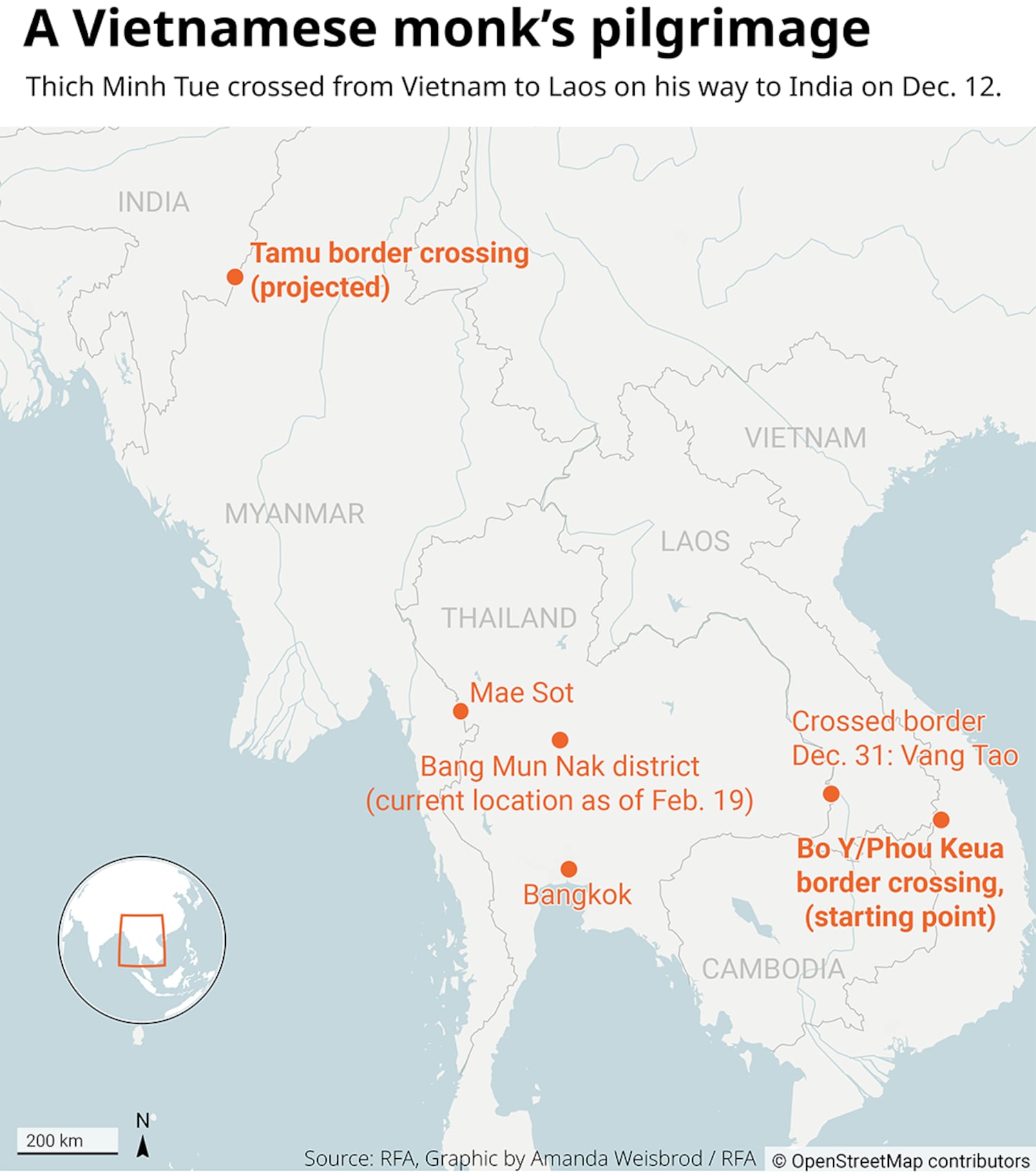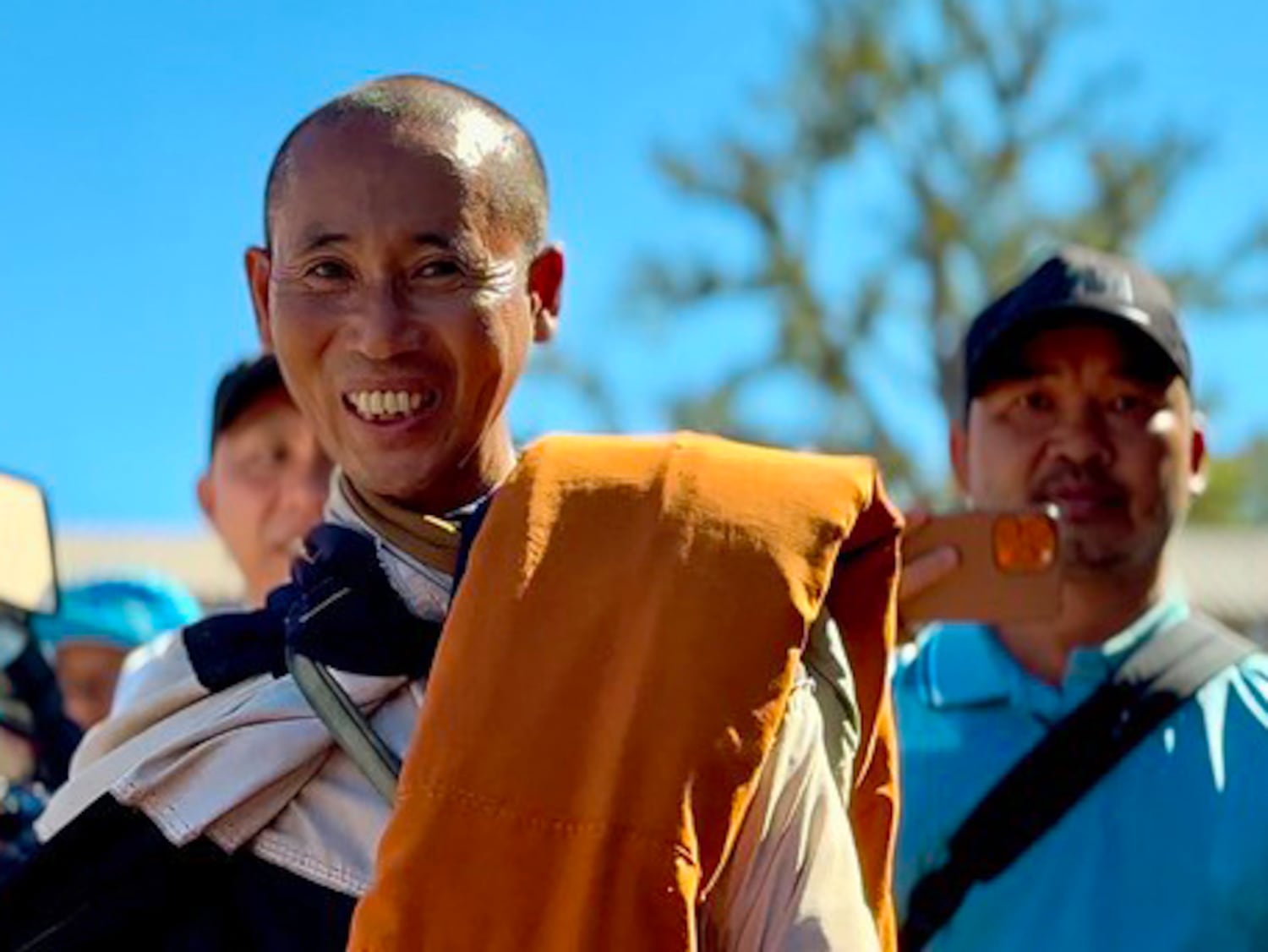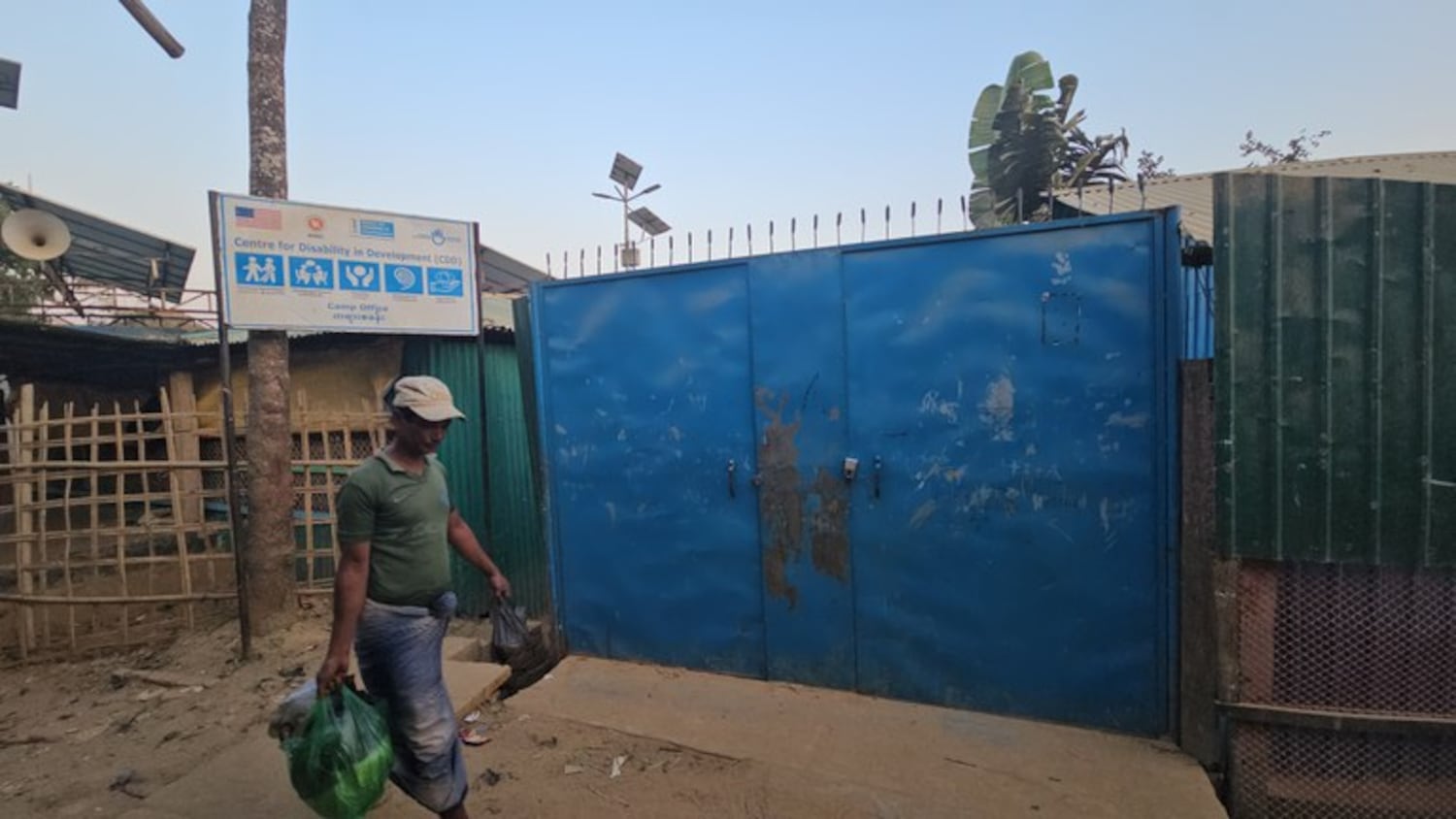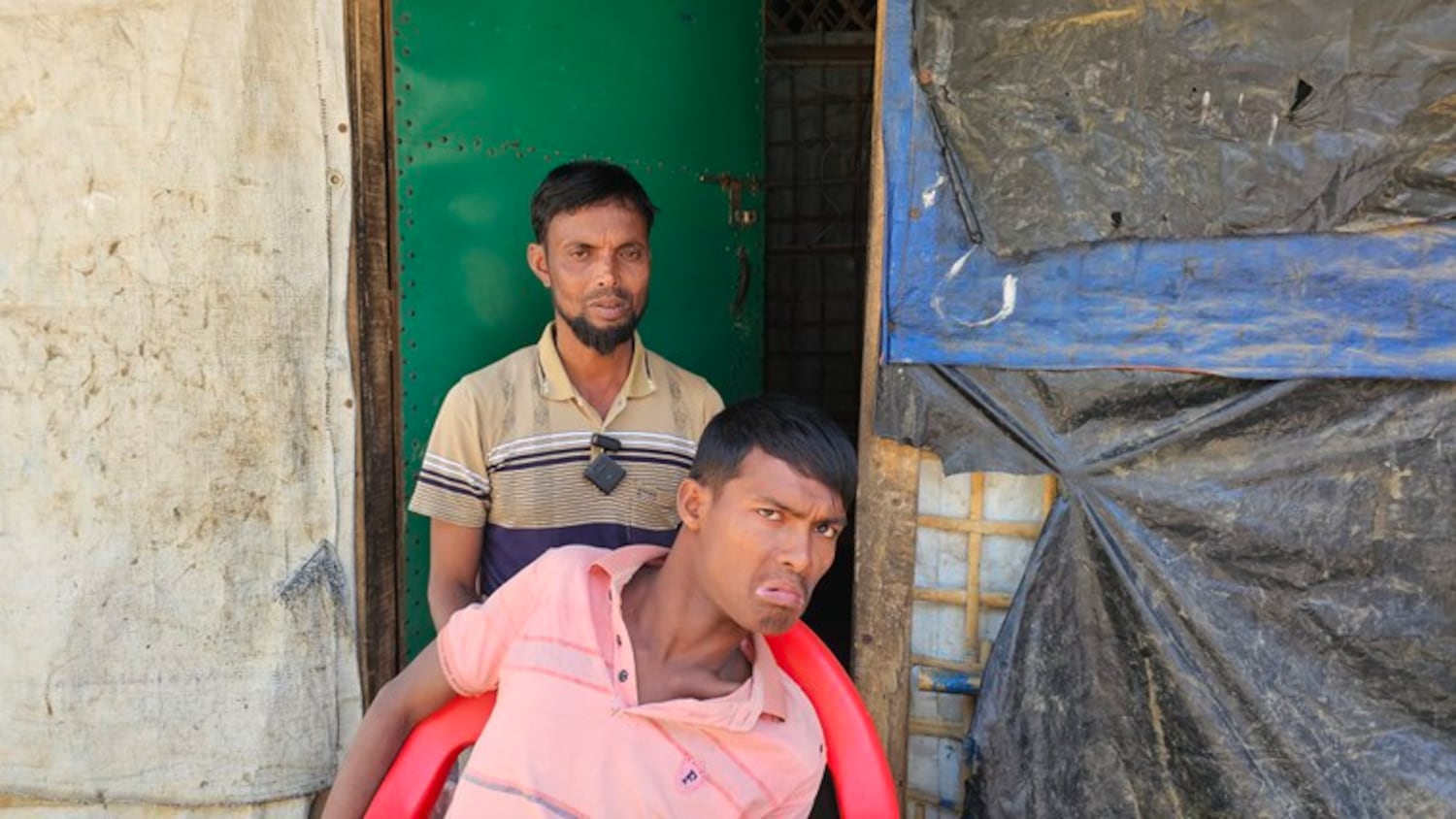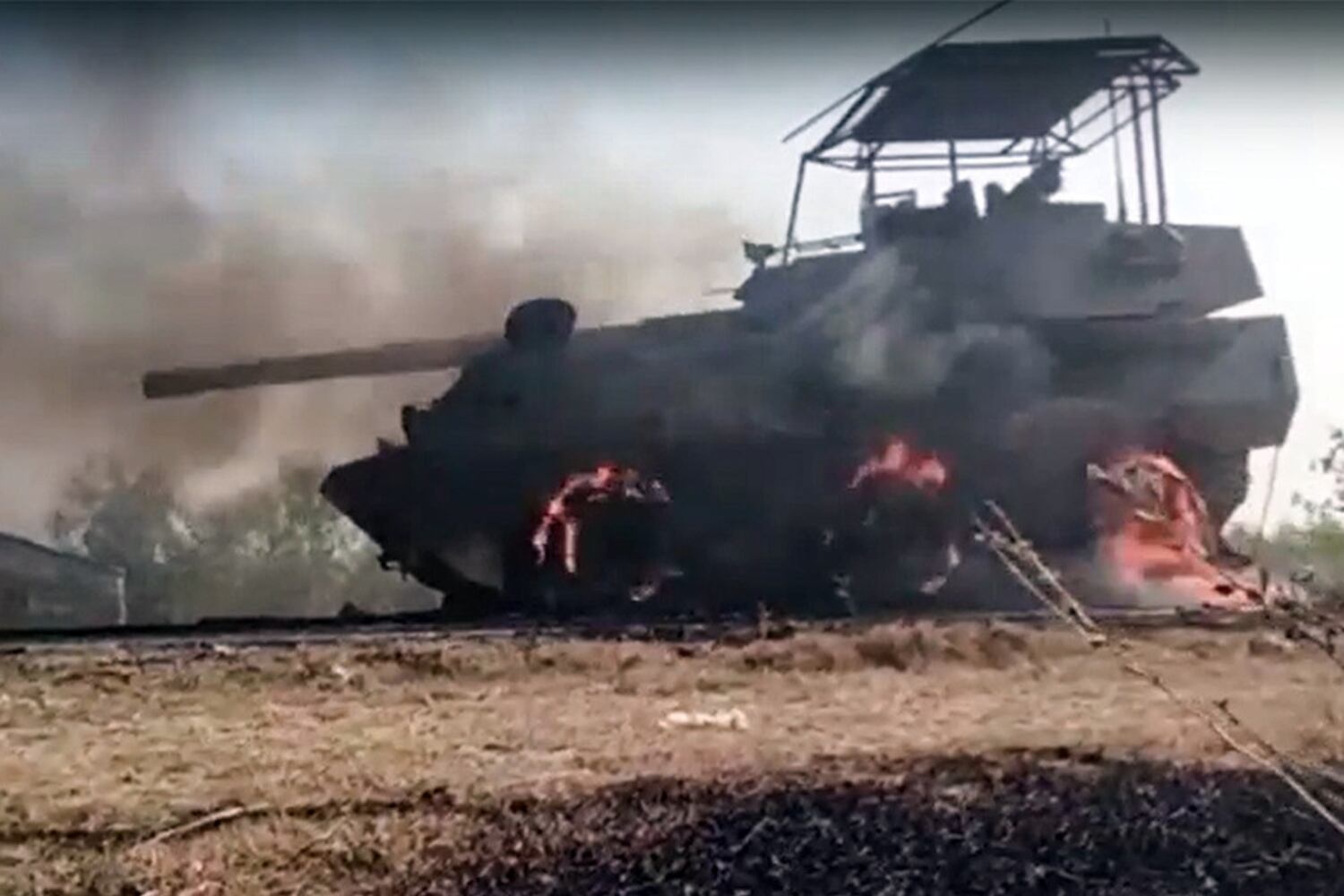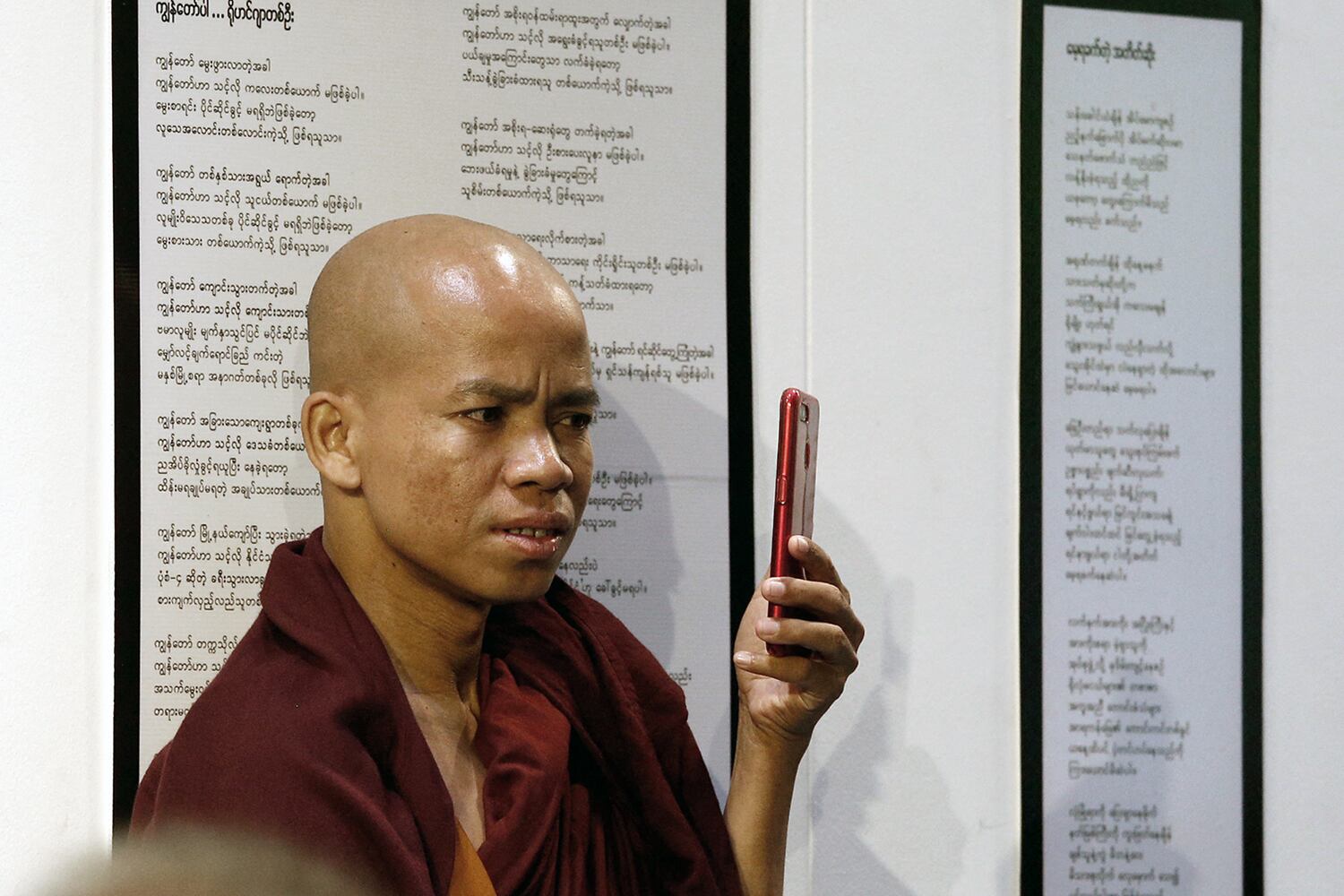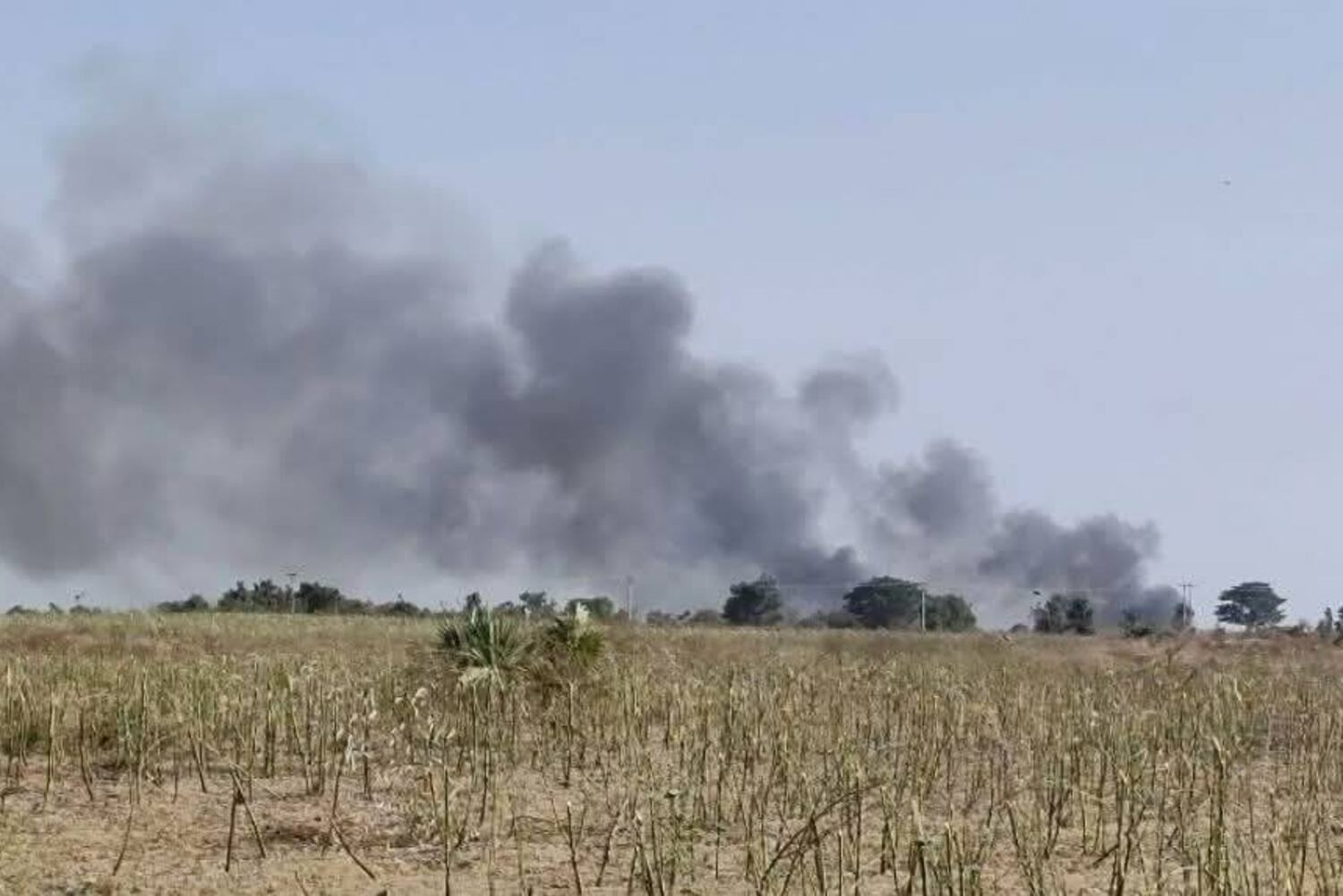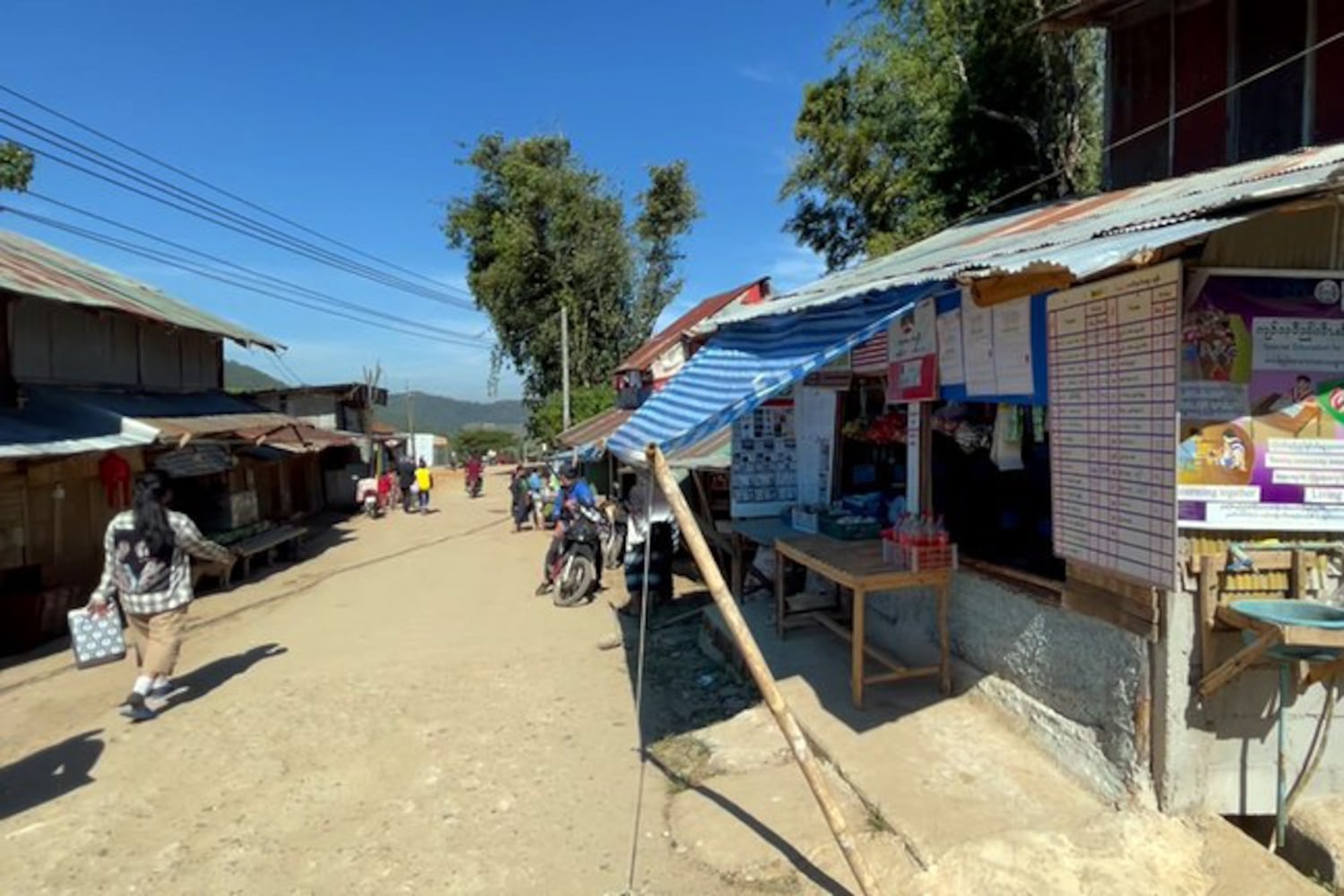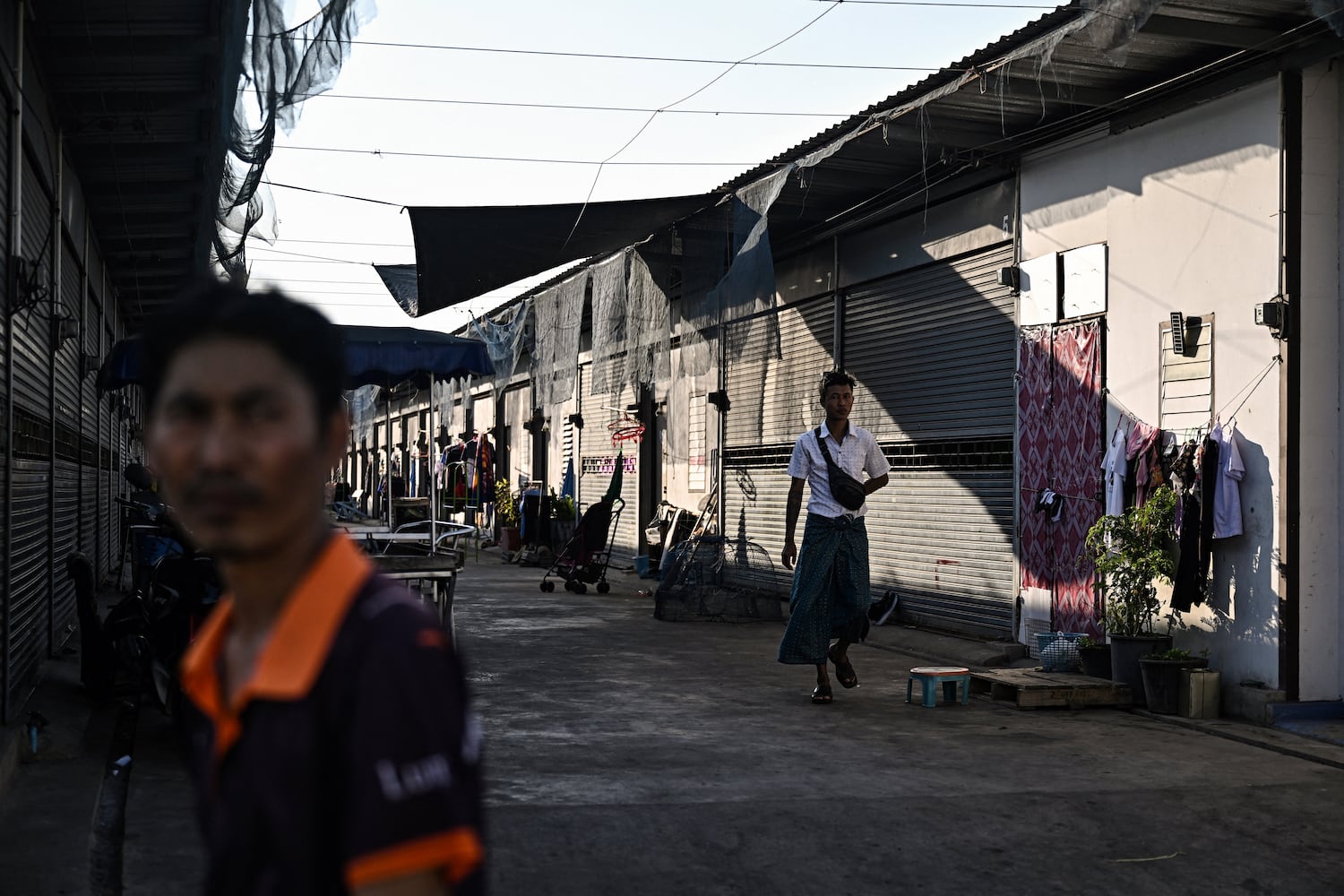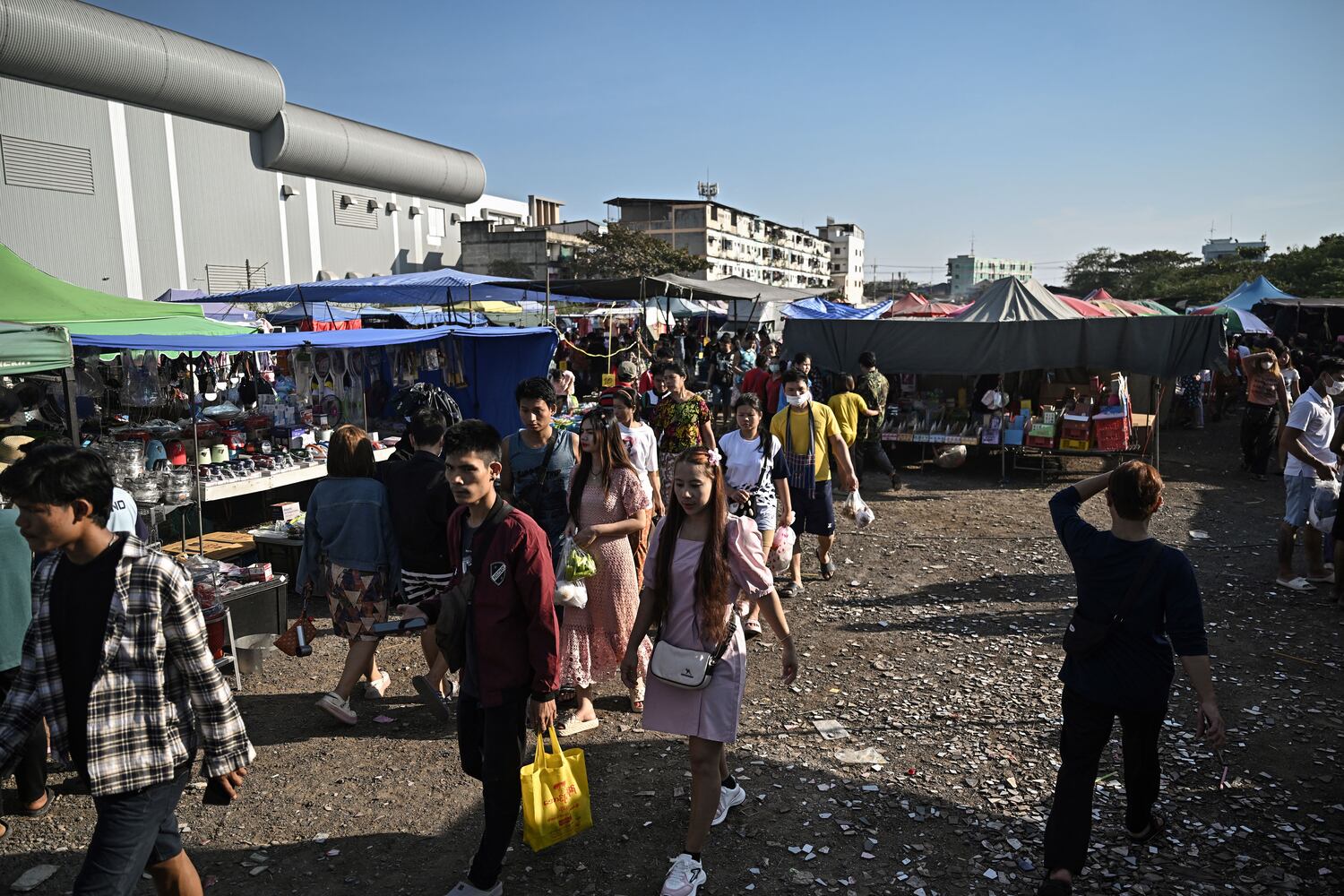Read a version of this story in Burmese.
Tomas Ojea Quintana is a human rights lawyer who served as U.N. special rapporteur on human rights in Myanmar between 2008 and 2014.
He represents the Burmese Rohingya Organization U.K., which filed a case in an Argentine court in 2019 that allege genocide and crimes against humanity were committed by senior Myanmar military officials against Rohingya Muslims.
Last week, Quintana told RFA that the Argentinian court had issued an arrest warrant for those named in the suit, including the de facto leader of the democratically-elected government, Aung San Suu Kyi.
She was deposed when the military took over the country in a 2021 coup and is believed to be under house arrest but the junta has not disclosed her exact location.
The Argentine suit was filed under the principle of “universal jurisdiction” enshrined in Argentina’s constitution, which holds that some crimes are so heinous that alleged perpetrators thousands of miles away can be tried.
Members of the deposed civilian government are named in the suit because they were in charge of the government in 2017, and Aung San Suu Kyi defended the military’s actions in 2019 to the International Court of Justice in The Hague, the Netherlands.
Members of Myanmar’s shadow National Unity Government, made up of other leaders deposed by the coup and their allies, have requested that Suu Kyi and other civilian leaders be removed from the arrest warrant because the Rohingya could be unfairly blamed for adding a blemish to the reputation of Myanmar’s most popular political figure. But Quintana said the court decided that she and the others must be included to show that the court is impartial.
The interview has been edited for length and clarity.
RFA: In our interview last year, you predicted that the Argentinian court would issue an arrest warrant for Aung San Suu Kyi and the others. Now, it has been realized. How significant do you think this warrant is for the Rohingya?
Quintana: We predicted that the Argentinian court would issue a warrant because we have been working very hard bringing evidence to the file in Argentina, bringing witnesses in person to give testimony, survivors to give testimony, to the court. And finally, the court understood what was at stake, which is the genocide against the Rohingya people.
And that’s why, after a request from the prosecutor and also a request from the Rohingya themselves, the court decided to issue this arrest warrant against 25 individuals.
And you are asking me how significant this is. I would say that we should ask the Rohingya community how they feel about it. My thought is that the Rohingya really welcome this decision because basically this decision recognizes the truth about the genocide committed in Burma in 2017.
RELATED STORIES
INTERVIEW: Ex-UN rights rapporteur on Argentina’s Rohingya genocide case
Myanmar Leader Slammed in Top UN Court For Apologia, Silence on Rohingya Atrocities
Myanmar’s junta moves Aung San Suu Kyi to house arrest, report says
It is the first step towards justice, in identifying the perpetrator and issuing international warrants to bring them to Buenos Aires, Argentina, to be accountable to the Argentinian court. This is a first step and I think is very significant, not only for the Rohingya but also for the overall Burmese community and for the other ethnic minorities. Because all of them have been facing and suffering decades of human rights abuses by the military in Myanmar.
RFA: The arrest warrant from Argentinian court includes Aung San Suu Kyi and former President Htin Kyaw. In this regard, the Rohingya activists who have filed the lawsuit told RFA that they included the civilian leaders’ names in the original filing in 2019. But after the military coup in 2021, they reviewed the decision. And in December 2023, they requested that the court exclude their names from the arrest warrant. But it still included their names when it was release. Can you tell me what happened?
Quintana: I would be very transparent in what the position of Burmese Rohingya Organization U.K. is and what my position is as their attorney. In fact, in the 2019 complaint, the Burmese Refugee Organization U.K. decided to describe what happened in Burma for decades and in particular in 2017, naming all those who might have been responsible, and that would include those who executed orders and issued the orders.
I’m talking about the military, but also all others who have had some level of responsibility. I’m talking about civilians and any leaders and so on and so forth.
We have been working with the court here in Argentina, providing evidence about the responsibility of the military. And that’s why … we made a request to the court of arrest warrants. We included the military because we understood that, due to the coup in Burma in 2021,… Aung San Suu Kyi has been persecuted by the military.
I should say that I met her in Burma three times in different circumstances. I know Aung San Suu Kyi.
Now while we are talking, she’s incarcerated. We thought that it was convenient in this first stage of the procedure in Argentina, the judicial procedure to target the military while they are still in power in Burma. Now, the court decided otherwise here.
Bear in mind how Aung San Suu Kyi reacted in 2017. Bear in mind that in 2017, the government officially was a civilian government, regardless of the lack of direct control that the civilian government had over the military….
Bear in mind that even during that time, in 2016 and 2017, the Rohingya continued to face this grave and systematic discrimination, restricting access to basic livelihoods, access to food and health, etc. Finally bearing in mind what Aung San Suu Kyi said before the International Court of Justice during the proceedings (in 2019) where she defended the military and the ethnic cleansing operations.
All these reasons made the court decide to include her in the list of arrest warrants. The 25 listed warrants therefore include Aung San Suu Kyi.
RFA: The National Unity Government called for removal of the civilian leader’s names from the arrest warrant list. What would be your response?
Quintana: Frankly speaking, what we have been receiving is support in general, from not only ethnic groups, but also Burmese people about these arrest warrants.
I can recall one of those messages where they say that if the court would exclude Aung San Suu Kyi from the arrest warrant, that will send the wrong message to the outside world about the lack of impartiality of the Argentinian court.
So, in general, the messages support the list of warrants. We know that others, and especially the NUG has made some observations about her being included in the warrant and even suggesting to exclude her. But that’s out of our hands. This is a decision of the jurisdiction. The court is an independent, impartial court that will respect basic rights of defendants.
Everyone will have the right to defend themselves here with an attorney, and it’s out of our hands to take her out of the list. We tried that before the warrants were issued as I said before.
We met the court, and we explained to the court the risk that the Rohingya may face if Aung San Suu Kyi is included in the list because the Rohingya may be blamed for her being included in the list. But the court decided they want to keep in mind the whole picture and the history of the facts.
RFA: By being included in the arrest warrant list, does it mean that the civilian leaders should have the same level of responsibility (as the military) for the crimes committed against the Rohingya?
Quintana: The criminal process here is just starting. This is a first step to issue arrest warrants. And then the court will determine the nature and the kind of responsibility that each of the perpetrators have. In our view, there is a clear distinction between the responsibility of the military who planned and ordered the ethnic cleansing operations and committed the crimes on the ground, killing Rohingyas, raping women, burning down villages and so on and so forth.
The responsibility of the civilian government is different, and it will be for the court to determine what is the level of complicity of the civilian authorities with this genocide.
RFA: Learning from the past, lawsuits filed under the universal jurisdiction do not go very far to the point of actual arrest, extradition, or conviction and sentencing. How far do you think this case will go?
Quintana: The lawsuit should go as far as it can because the Rohingya are pursuing justice. And justice means to have a public trial where the victims can express their grievances. And then the court will issue a sentence that could be a conviction.
Look, when the case was filed in 2019. Most people were reluctant, were pessimistic about the challenge of bringing a universal jurisdiction case in Argentina. I remember very well that it was 2019. People were saying “What were you aiming at? I mean, nothing will happen.” And the reality is that throughout these years, a lot of things have been achieved.
First, empowerment of the Rohingya people and the notion that they deserve justice and they can do action to achieve justice. And now we have an arrest warrant, an international arrest warrant. Very soon it will go to Interpol. So this international organization will get involved, and we will work hard with all partners.
Basically we encourage the international community, and all members of the United Nations. The United Nations has been passing resolutions for many years condemning the crimes of the military, condemning the genocide of the Rohingya.
Now, this is the time for all of those countries to basically respond to that commitment and to take action. So we’ll see how the developments go. We’ll see what will happen with these perpetrators. The military should immediately release Aung San Suu Kyi so she can start working on her defense for the case here.
So we urge the military to release Aung San Suu Kyi from prison so she can respond to the Argentinian court. There are a lot of challenges, of course, and obstacles, but they also a lot of opportunities. We are raising the bar of commitment towards accountability. In this turmoil(-filled) world, where everything is under question, it is very important to have this arrest warrant, because it’s a reaffirmation of what we believe is important, which is respect and protection of human rights.
Edited by Eugene Whong and Malcolm Foster.
This content originally appeared on Radio Free Asia and was authored by Ye Kaung Myint Maung for RFA Burmese.
This post was originally published on Radio Free.

